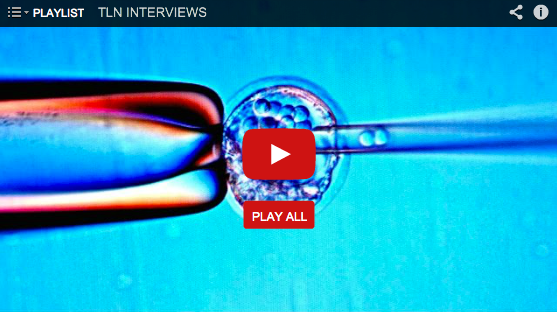What is multiple sclerosis?
Multiple Sclerosis (MS) is caused by an immune mediated attack targeting components of the myelin sheath. The myelin sheath is known to act as an “insulator” for neurons so that they can communicate properly with each other.
Can stem cells improve multiple sclerosis symptoms?
At present there are no FDA-approved treatments that specifically target the abnormal immune responses in MS. Current approaches, such as interferon, copaxone, or immune suppressants all act in a non‐specific manner blocking immune responses against the myelin sheath. While these approaches are useful for reducing the severity of disease, they do not repair the damage to nervous system tissue that has already occurred and therefore they cannot cure multiple sclerosis.
Mesenchymal stem cells (MSCs), have immune regulatory properties which may stop the immune system from attacking the myelin sheath.
Mesenchymal stem cells may also potentially help remyelination (re-generation of the myelin sheath) of the affected neurons. Currently, the University of Cambridge is conducting formal clinical studies using mesenchymal stem cells for MS.
Which types of stem cells are used and how are they obtained?
The adult stem cells used in our investigational stem cell treatments for MS are called allogeneic mesenchymal stem cells. They are harvested from human umbilical cords donated after normal, healthy births. Each mother is tested for infectious diseases and has her medical history screened. Proper consent is received from each family prior to donation.
Before they are approved for use, all umbilical cord-derived stem cells are screened for infectious diseases to International Blood Bank Standards.
Only about 1 in 10 donated umbilical cords pass our rigorous screening process.
What are the advantages of allogeneic human umbilical cord tissue (HUCT)-derived mesenchymal stem cells?
- Since HUCT mesenchymal stem cells are immune system privileged, anyone can receive them. Human Leukocyte Antigen (HLA) matching is not necessary.
- Allogeneic stem cells can be administered multiple times over the course of days in uniform dosages that contain high cell counts.
- Umbilical cord tissue provides an abundant supply of mesenchymal stem cells.
- No need to collect stem cells through invasive procedures such as liposuction or bone marrow collection
- There is a growing body of evidence showing that HUCT mesenchymal stem cells are more robust than mesenchymal stem cells from other sources such as fat.
The body’s immune system is unable to recognize umbilical cord-derived mesenchmyal stem cells as foreign and therefore they are not rejected. HUCT stem cells have been administered thousands of times at the Stem Cell Institute and there has never been a single instance of rejection. Umbilical cord-derived mesenchymal stem cells also proliferate/differentiate more efficiently than “older” cells, such as those found in the fat and therefore, they are considered to be more “potent”.
VIDEO – Watch Professor Arnold Caplan explain how this works.
How are the stem cells administered?
The HUCT stem cells are administered intravenously by a licensed physician. Additional methods may be recommended.
Investigational Stem Cell Treatment for Multiple Sclerosis: Clinical Protocols
Below is an example of a typical multiple sclerosis schedule. Our investigational clinical protocol for MS (www.clinicaltrials.gov NCT02034188) has been approved by the National Institutional Review Board for Clinical Protocols.
- Medical evaluation, blood testing (day 1)
- 2 intravenous injections of human umbilical cord tissue-derived mesenchymal stem cells (day 2)
- 1 intravenous injection of HUCT mesenchymal stem cells (day 3)
- 1 intravenous injection of HUCT mesenchymal stem cells (day 4)
- 2 physical therapy sessions
All subject’s receive a one-month supply of Stem Kine supplement (only after medical evaluation in Panama)
What is the difference between a stem cell treatment for multiple sclerosis and an investigational treatment under clinical protocol for MS?
In Panama, the term “stem cell treatment” is reserved for stem cell products that have been approved for use by the Panamanian Ministry of Health (PMH). Before PMH approval, use of these products are referred to as “investigational treatment under clinical protocol” to reflect the fact that they are not yet proven and still under investigation.
At present, we are conducting clinical research and administering investigational treatment under clinical protocols that are reviewed and approved by the National Committee for Bioethics in Research Institutional Review Board (IRB) approval. The IRB reviews all investigational clinical protocols and monitors stem cell research involving human subjects.
In the United States, stem cell treatments are regulated by the Food and Drug administration (FDA). In Europe, the European Medicines Agency holds jurisdiction over stem cell treatments.
Currently, no stem cell treatments for multiple sclerosis have been proven safe and effective in the United States, European Union or Panama.
What about follow-up after I return home?
We want to help our subjects and we care about how you are doing after you return home. Proper follow-up also helps us evaluate efficacy and improve our investigational stem cell treatment protocols based on observed outcomes.
Therefore, one of our staff will be contacting you after 1 month, 3 months, 6 months, and 1 year after the treatment to follow up on your condition.
May I speak with subjects who have completed a multiple sclerosis investigational treatment?
Yes, you may. Once you been evaluated and approved by our medical team, your international coordinator will be happy to put you in touch with a few.
We also welcome you to view multiple sclerosis testimonials, news articles and videos. Please take a look!
How do I request more information?
You may contact us by telephone 1 (800) 980-STEM (toll-free in US) and 1 (954) 358-3382.
Apply today
To apply for a stem cell clinical investigation, please complete this Application Form.


